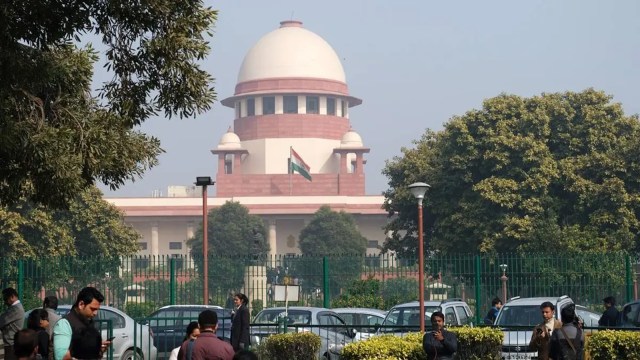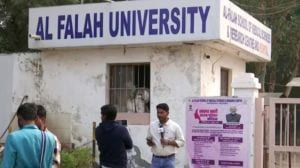Stating that marriages fixed in the minority of a child have the effect of violating their “free choice” and “childhood”, the Supreme Court on Friday asked Parliament to consider banning child betrothals by amending the Prohibition of Child Marriage Act (PCMA), 2006.
A three-judge bench presided by Chief Justice of India D Y Chandrachud said “international law such as the Convention on the Elimination of All Forms of Discrimination Against Women (CEDAW) stipulates against betrothals of minors”.

“Marriages fixed in the minority of a child also have the effect of violating their rights to free choice, autonomy, agency and childhood. It takes away from them their choice of partner and life paths before they mature and form the ability to assert their agency,” said the bench, also comprising Justices J B Pardiwala and Manoj Misra.
Story continues below this ad
“Parliament may consider outlawing child betrothals which can be used to evade penalty under PCMA. While a betrothed child may be a child in need of care and protection under the Juvenile Justice Act, the practice requires targeted remedies for its elimination,” it said.
Under PCMA, which considers child marriage a criminal offence, girls below the age of 18 and boys under 21 are deemed to be children.
The court also dealt with the interface between personal laws and prohibition of child marriage under the PCMA.
While saying that the Union Government had, in a note submitted after the judgment was reserved, requested the court to direct that PCMA prevails over personal law, it noted that The Prohibition of Child Marriage (Amendment) Bill 2021, which seeks to amend the PCMA to expressly state it will prevail over various personal laws, was introduced in Parliament on December 21, 2021 and referred to a Standing Committee. “The issue, therefore, is pending consideration before Parliament,” it said. The SC judgment came on a PIL by the Society for Enlightenment and Voluntary Action urging steps to check child marriages.
Story continues below this ad
On child marriages, the court said it “adversely affected” both sexes. “Girls who are married off early are not only denied their childhood but are also forced into social isolation…Boys who are married early are forced to take up more responsibilities and are pressured to play the role of a provider to the family, earlier in life,” it said.
The court noted that since the enactment of PCMA, “the prevalence of child marriages in India has halved… from 47% to 27% in 2015-16 and 23.3% in 2019-2021” but that despite the Centre’s efforts, there remains a gap in implementing specific, targeted measures focused solely on the prevention of child marriage.
“Existing schemes, while impactful, do not provide sufficient tools to tackle child marriage comprehensively…,” said the court.
Referring to data presented before it, the court said that it “reveals that a comprehensive, multifaceted approach involving training schemes, awareness programs, and financial incentives is essential for effectively combating child marriage. However, not all States have adopted this three-pronged strategy.”
Story continues below this ad
It said that “while these efforts contribute to raising awareness and promoting societal change, families facing financial hardships may still lean toward early marriage without economic support for educational or vocational opportunities. The absence of direct financial assistance may limit the reach and impact of otherwise well-designed training and awareness programs”.









